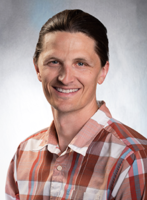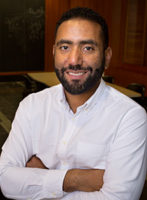Concentration: Biomedical Imaging

The Biomedical Imaging concentration helps us see inside the body through work on new imaging systems and refinements to technologies like MRI, CT and ultrasound. We learn to analyze imaging systems with quantitative assessments of resolution, contrast, and noise.
Real-World Applications
Magnetic Resonance Imaging, Magnetic Particle Imaging, signal improvement, image analysis, new imaging modalities.
News About: Biomedical Imaging
Herr wins Weill Neurohub Investigator Award
A research project on “the protein code of brain aging: from molecules to mechanisms,” by Professor Amy Herr has been selected for a Weill Neurohub Investigator Award. The Investigators program funds top faculty to form cross-campus, interdisciplinary teams to explore, create, and test bold new concepts and technologies.
Heart-on-a-chip may lead to new treatments for heart failure
A team led by Professors Kevin Healy and Niren Murthy have developed a microfluidic heart-on-a-chip, with which they were able to discover a lipid nanoparticle that could penetrate the dense heart muscle and efficiently deliver its cargo of therapeutic mRNA into heart muscle cells. This new drug delivery method and testing platform may pave the way to new cardiac treatments.
Fletcher elected to National Academy of Medicine
Professor Dan Fletcher has been elected to the National Academy of Medicine for his contributions to the mechanistic understanding of biological self-assembly and mechanotransduction, and his work developing mobile phone-based microscopy for remote diagnosis of infectious diseases. Election to the academy is considered one of the highest honors in the fields of health and medicine.
Aaron Streets named AIMBE Fellow
Professor Aaron Streets has been named to the College of Fellows of the American Institute for Medical and Biological Engineering (AIMBE). Streets was selected for “developing innovative technology to elucidate genome regulation with single-cell and molecule resolution, and for impactful leadership to diversify bioengineering.
BlotSeq single cell sequencing – animated!
BioE postdoc Trinh Lam’s animated video explains how Herr Lab’s BlotSeq single-cell tool uses sequencing data to guide protein selection without the need to predefine targets, making the process more flexible.
Diverse paths to discovery at UC Berkeley
BioE graduate student Jazmin Isabel Velazquez examines the unique paths every graduate student takes on the road to their PhD in this story based on her experience in the Healy and Rubinsky Labs.
Herr Lab Postdoc Wins AIP Best Paper
Trinh Lam, a postdoc in Amy Herr’s lab, has won the Biomicrofluidics Best Paper Award from AIP Publishing at the 28th International Conference on Miniaturized Systems for Chemistry and Life Sciences – Micro-Total Analysis Systems (µTAS 2024).
Yartsev new HHMI Investigator
Congratulations Professor Michael Yartsev, named a Howard Hughes Medical Institute (HHMI) Investigator!
So to speak: how bats and humans communicate
Berkeley researchers led by Professor Michael Yartsev, working with scientists at Carnegie Mellon University, have identified the part of the brain in Egyptian fruit bats that controls vocalizations and found that it contains similar neural wiring and genetics to the part of the human brain that controls speech.
Putting on the heat
Professor Seung-Wuk Lee discusses pyroelectricity: the finding that viruses can generate electricity when exposed to heat, and how this may pave the way for next-generation biosensors and diagnostic tools.





















